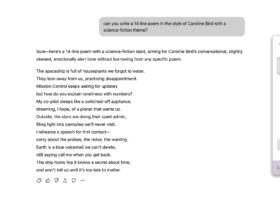Tackling poetry readings – angst & a few ideas

September always feels like a new start, and as I’m gearing up to a pamphlet launch in early 2018 I’m trying to get some readings set up. I’ve queried some poet friends, sent a few polite emails and things are taking shape.
Not everyone responds to query emails, which is a shame, but I suppose they get a lot of requests to read and they may not know me from Adam. At the Needlewriters in Lewes our waiting list for potential readers is about three years long, so I’m not fazed when people offer me something in 2019!
Anyway, I’ve had a bit of a readings hiatus, so I’m thinking again about reading technique, memorising, putting a set together and so on. (Warning: angst alert!)
I’ve never been on a ‘how to read poetry to an audience’ course but such a course is tempting. I hear great things about Live Canon in this respect, indeed I’ve seen (and been very impressed by) their alumni. But of course, reading one’s poetry presents different challenges to different people.
A poetry reading – how I try not to cock it up
I tend not to get overly nervous, in fact I enjoy readings, but only if I’m well prepared, and if I haven’t done enough prep then the cracks quickly appear. They may not always show to the audience (fifteen years of marketing presentations taught me a lot) but I feel them, and the whole thing starts to be not fun. If I’ve decided to memorise something, I then see it as a great failure if I dry up. Luckily, unlike actors, ‘page’ poets have the choice of reading from memory or not. So I must learn to only read off the book if I know I’ve practised enough.
Also, I know that my voice can be a weakness – I have an accent that occasionally wavers inexplicably, especially if I think about it as I’m speaking. I put it down to some deep-seated social anxiety, but I’m also what linguists call an accommodator, which means you have a tendency to unconsciously mirror other people’s accents. Another problem is that when ‘projecting’ to an audience I can get lazy and stop using my diaphragm to breathe, so my throat tightens up, the sound is forced and afterwards I feel I’ve strained it. Working on singing technique has helped with this a lot. If I were a school teacher it probably wouldn’t be an issue, as teachers learn quite early on how to not misuse their voices.
Yet more angst about it
Then there’s the worry of appearing over-confident, or even over-casual about it all. I love going to readings where the poet is confident enough in themselves to let the poetry do the talking, where there’s no anxiety being communicated from reader to audience (even if it is there), where they are well prepared, know what they’re going to read next, know when to finish. But there’s a fine line between this and appearing overly slick, or possibly even enjoying the sound of one’s own voice. Then again, maybe I shouldn’t worry about this – everyone’s threshold for ‘fakeness’ is different, and you can’t please everyone…in fact, just writing a blog is, for many people, a de facto example of enjoying the sound of one’s own voice, so I’d better shut up now.
Something useful
If you’re interested in this topic (or if I’ve made you more anxious than you were already), poet and voice and voice specialist Marek Urbanowicz produced this PDF tipsheet for Agenda – How to Improve Reading Your Poetry.
Live Canon as I mentioned do run occasional courses in performing poetry, and also offer coaching in ‘voice, breath, preparing poems for performance, combatting nerves, microphone technique’ – oh NO, microphone technique, I don’t even want to go there!
Tell me about it
I’d be interested to hear your thoughts on poetry readings – either as the poet reading (how do you prepare? any tips?) or as the long-suffering audience member (what can poets do to make it work for you?)



I’d love to attempt a memorised reading – either in full or in part. I’m always impressed by poets who work from memory and I think the freedom it must give a performer helps to communicate the work to an audience. The text is usually a barrier in some form or other – the audience obviously sees it, and in some cases, where people are attempting to read from huge, unbound sheaves of paper or squinting at a phone, it becomes a massive distraction.
I enjoy doing readings and never get nervous, although I always make sure I prepare thoroughly and time my set, including the preamble about each poem.
I’ve found reading bedtime stories to my children has really helped! I find I rarely stumble over words.
Hi Ben – that’s a good point, the text being a kind of barrier. I don’t mind if the poet looks up as much as possible and has eye contact with the audience in between glances down. And yes – timing the preambles is a very good point. And practising them. I confess I’ve often messed up the preamble and that’s then put me off enjoying reading the poem. Stupid!
The first time I read in public I prepared by memorizing every word I was going to say and by getting fearsomely drunk. As far as I can remember, it worked quite well, but it’s not an approach I’ve adopted since or which I would necessarily recommend.
I still try to memorize the poems though, partly because I think it works better in front of an audience, but mostly because it helps get rid of the rubbish.
I found going to Hammer and Tongue in Brighton very useful (it is also fun) – some of the performers are astonishing and you get to understand performance as a distinct skill.
I usually preface gloomy/gruesome stuff with what I choose to think of as humour – sometimes as a kind of reminder that the narrative I of a poem stands at a variable distance from its author.
But intros that basically paraphrase the poem to come suck out the oxygen.
Hi Tim, excellent points all (er, maybe not the getting drunk beforehand, but thanks for your honesty!) I’ve never been to Hammer & Tongue although a friend who’s a fan has suggested it once or twice, so maybe I should. Good point about not ‘explaining’ (‘poetsplaining’?) the poem before reading. Ha ha!
The most memorable poetry reading I’ve ever been to was one given by Hugo Williams at Torbay Poetry Festival. He brought along, what looked like, his collected works, and appeared to pick poems at random. He contextualised each poem (briefly) before reading them in a natural speaking voice. He didn’t resort to fireworks (physical or verbal) and was totally mesmerising. I prefer poets that draw you in with their words. Vicki Feaver, Jacqueline Sapphra, and Paul Birtill with his deadpan delivery, spring to mind.
Hi Maggie – well put, thank you – how lovely when you get that mesmerising feeling. Hugo Williams can do no wrong in my book anyway!
I admire performance poets or those who learn their poems by heart, but I would be nervous about forgetting or drying up (I have no problems when it comes to memorising other people’s poems or plays, surprisingly). I do often give lectures or training courses, so I know I can easily project my voice without straining it. One good piece of advice is not to drink fizzy drinks or mineral water (burping) or anything with dairy (seizes up throat muscles potentially).
Thanks Marina – yes, I do know what you mean about the fizzy water! Funny how it’s easier to memorise someone else’s words. I tend to agree with you, and I wonder why that is?
Remember the audience is on your side (unless you do something to turn them against you) so they want you to relax (or at least appear so) and to hear your poems. Don’t worry too much about emulating others, just focus on what’s right for you and your poems. I think memorising or not memorising poems is a personal choice and if you do memorise them, it’s still good to keep the text version to hand because it acts as a prop to reassure your audience (I was at a reading where a poet trying reciting from memory, had a mind-blank after the second stanza, tried again, got stuck again, spent several minutes trying to silently recall the poem and then abandoned it and moved on the next poem, by which time the poet had lost the audience). I think memorising someone else’s words is easier because you are just focusing on the given words and you’re a) not worried about whether the audience understands them and b) not wondering if line 2 needs a comma or whether changing a word in line 3 would improve things. Irritations: the poet who turns up with a selection of work and appears to be picking poems at random with long silences while he or she shuffles through papers trying to decide what to read next, noisy jewellery (a arm’s worth of clanking bangles can drown out words), poets who put a barrier between themselves and an audience e.g. by sitting behind a table or failing to make eye contact, poets who overdo the pacing/swaying/extravagant hand gestures (occasional gestures for emphasis or moving to a different part of the stage is fine) and the poet who asks how much time they have left because it suggests lack of rehearsal and failure to check timing beforehand. One thing that really irritates me as a reader is when I turn up and just before I’m about to read, the organiser asks if I can cut my reading because earlier events/readings have overrun.
Ha ha! Thanks for that Emma – what a rogue’s gallery of errors, but I can’t disagree with any of it! Especially the overrunning – grrrr – although I think that’s down to the organiser to control. I haven’t encountered the jangling jewellery but I can imagine it. 🙂
Thanks, Robin. What do you think about saying ‘Thank you’ after each poem? Opinion seems divided, though I don’t like it, when there has been no applause!
Hi Jinny – not sure I have strong feelings about that, I know I admire poets who resist saying thank you until the end, so that’s what I try to do. Saying thank you when there’s no applause seems a bit awkward! Although I suppose it means ‘thankyou for listening’ so that’s fair enough. I do get irritated when it’s a magazine or anthology launch and someone starts with ‘I’d like to thank [editor name/selector] for including my poem, it’s an honour and a privilege’ or words to that effect, because it means anyone who read before them who didn’t say that might look rude, and people reading afterwards then feel obliged to say the same, and all gets really gushy and people go over their time limit etc… why not thank the editor personally over a drink in the interval? Or better still, buy them a drink! 🙂